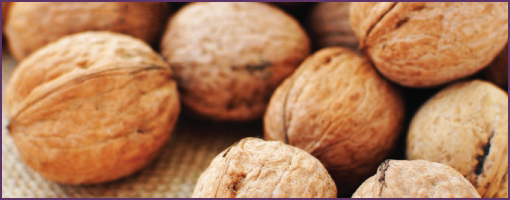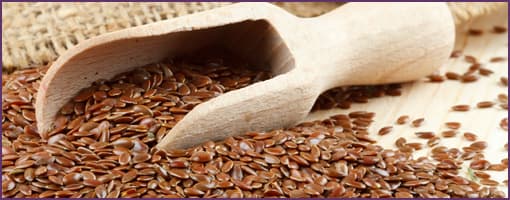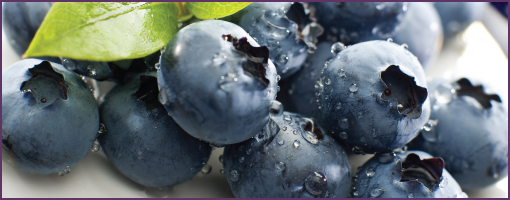Top Seven Brain Foods
Recent long-term research studies have pointed to a number of nutrients many people lack that are especially valuable for those who have a risk or history of heart disease, stroke, or Alzheimer's disease. Here are seven "super foods" that are loaded with
these essential nutrients. Some of the foods on this list may even surprise you.
Salmon

1. Salmon or Other Fatty Fish
Salmon and other colder water fish, such as tuna, sardines, or mackerel, are low in calories and saturated fat, yet high in protein. Most importantly, these fish are rich in a unique type of health-promoting fat, the essential fatty acid DHA (docosahexaenoic
acid), better known as "omega-3." Omega-3 essential fatty acid (DHA) optimizes levels of triglycerides which carry fat in your bloodstream, reducing the low-density LDL (bad) cholesterol linked to increased risk of cardiovascular disease, while improving
the high HDL (good) cholesterol that fights deposits in the arteries. There is strong evidence linking low levels of DHA to memory loss and other symptoms of dementia. A 10-year study of 1,000 older individuals showed that a low DHA level was a significant
risk factor for the onset of Alzheimer's disease (Archives of Neurology, November 2006).
Nuts

2. Walnuts, Almonds, and Other Nuts
Considerable scientific evidence suggests that eating one ounce per day of certain nuts may reduce the risk of heart disease. In 2003, the U.S. Food and Drug Administration (FDA) approved this claim exclusively for walnuts, almonds, hazelnuts, pecans,
pistachios, and peanuts. Although nuts are a higher-fat food, they are cholesterol-free. Most of their fat comes from heart-healthy, unsaturated fat, including omega-3 (DHA). In fact, one ounce of walnuts (about a handful) is all that is needed to
meet the daily omega-3 dietary recommendation by the National Academies' Institute of Medicine. Walnuts and other nuts (especially Brazil nuts) are also one of the best sources for what scientists have called the top three nutritional deficiencies:
magnesium, manganese, and selenium. These play a role in more than 100 biochemical reactions in the human body, including critical heart and nerve functions. One ounce of nuts also provides 35 percent of the RDA recommended dietary allowance for vitamin
E. A study reported in the Journal of the American Medical Association suggests vitamin E may help protect people against Alzheimer's disease (JAMA, June 26, 2002). Walnuts also are recommended as part of the DASH diet (Dietary Approaches to Stop
Hypertension), a dietary plan clinically proven to significantly reduce blood pressure.
Carrots

3. A Carrot a Day for Vitamin A
Oxidative damage to brain cells contributes to neurological degeneration and the development of dementia. That's why antioxidants such as vitamins A, C, and E as well as flavonoids are so important. Many complementary studies have shown that people who
consumed higher levels of vitamin A and other antioxidants over several years had substantially decreased levels of Alzheimer's disease. This was even more pronounced among smokers. A new Dutch study links diets rich in four antioxidants —beta-carotene,
vitamin C, vitamin A, and zinc— to lower odds of developing age-related macular degeneration (JAMA, December 28, 2005). Nothing beats a carrot as a powerful source of beta-carotene (which your body converts to vitamin A). One carrot delivers
203% of the daily RDA for vitamin A. Broccoli and other vegetables are also high in vitamin A, but you would have to eat almost nine broccoli florets to equal the vitamin A in one carrot. Don't overdo it though. More than three carrots a day will
saturate the body's ability to store vitamin A over a short time and can show up as an orange tint on the skin. Other beta-carotene/vitamin A powerhouses include sweet potatoes, cantaloupe, melons, mangoes and apricots.
Eggs

4. Eggs—Including the Yolk—No Joke
Eggs are a superior source of protein, containing all the essential amino acids needed by the human body. Twelve and a half percent of the weight of the egg is protein. On the evaluation scale most commonly used for assessing protein, egg is at the highest
point, 100, and is used as the reference standard against which all other foods are assessed. Eggs contain most of the vitamins—except vitamin C—and minerals that the human body requires for health. In particular, eggs are an excellent
source of iodine (essential for the thyroid), phosphorus, calcium, and zinc (needed for wound healing and fighting infection). Although eggs contain cholesterol, eating eggs in moderation won't adversely affect the blood cholesterol level of most
people. Cholesterol levels are far more influenced by how much saturated and trans fat you eat than dietary cholesterol. To keep eggs healthy for the heart, prepare them using non-oily methods of cooking, such as hard- or soft-boiling or poaching.
If you prefer fried or scrambled eggs, use olive oil or an olive-oil based spread or cooking spray instead of butter or transfatty margarine.
Flax Seed

5. Flax Seeds
Flax seeds contain high levels of lignans and omega-3 fatty acids. Lignans may benefit the heart and possess anti-cancer properties. Laboratory studies have also found lignans to reduce growth in specific types of tumors (Cancer and Nutrition, March 2005).
Flax seed may also lessen the severity of diabetes by stabilizing blood-sugar levels. Flax seed is also useful as a natural laxative due to its high soluble (non-gassy) dietary fiber content. You can include flax seed in home cooking by sprinkling
it on cereal and salads. Flax seed mixtures can even be substituted for eggs in home baking such as muffins and pancakes (1 tbsp. milled flax seed + 3 tbsp. water = 1 egg. However, final products will be less fluffy).
Blueberries

6. Blueberries
Packed with antioxidants, brain-boosting B6, B12, folic acid and phytoflavinoids, blueberries are also high in potassium and vitamin C, making them the top choice of doctors and nutritionists. Not only can they lower your risk of heart disease and cancer,
they are also anti-inflammatory. Frozen blueberries are just as good as fresh.
Dark Chocolate

7. Dark Chocolate and Hot Cocoa
New research has shown that dark chocolate is packed with antioxidants. Nutritionists recommend 60% or higher cocoa content—the darker, the better. The darker it is, the lower the fat and sugar content. Cocoa can also help prevent osteoporosis,
especially when used as a way to include skim milk (rich in calcium and vitamin D) into the diet. After age 50, 1,200 milligrams of calcium daily are recommended to help prevent osteoporosis. One cup of skim milk provides 300 milligrams. Mounting
evidence suggests that low levels of vitamin D increase the risk of death for older people. A 2008 study found that death rates from any illness, especially cardiovascular disease, were higher in people with low vitamin D (Archives of Internal Medicine,
June 23, 2008). Cornell University food scientists reported that cocoa is rich in antioxidants that can lower cholesterol and help prevent cancer (Journal of Agricultural and Food Chemistry, December 2003). When they compared the anti-cancer activity
of cocoa to green tea and red wine beverages known to contain antioxidants, they found that cocoa had nearly twice the antioxidants of red wine and up to three times those found in green tea. Hot cocoa is better than cold. When cocoa is heated, more
antioxidants are released.
